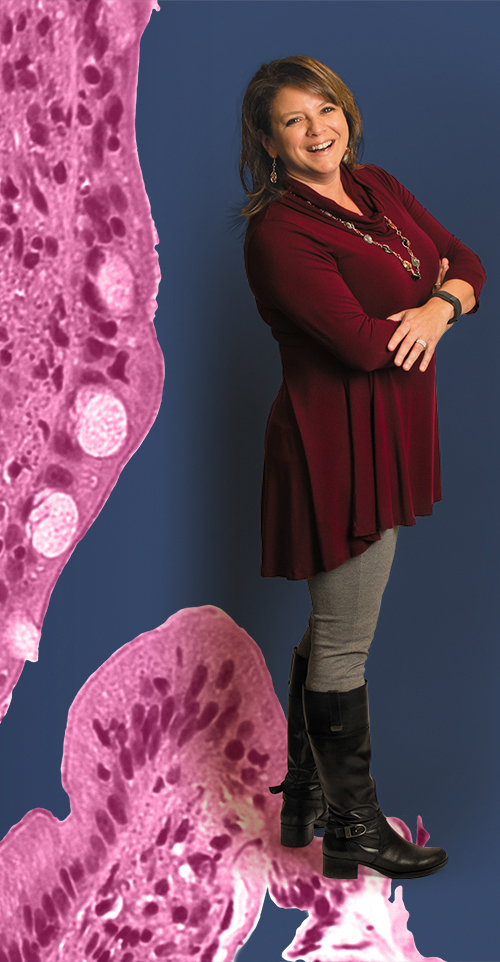Avoiding gluten is key to this autoimmune disorder
Stephanie Patterson’s celiac disease went undiagnosed for 10 painful years, mostly by Patterson herself.
“Bad things were happening to my body,” said the administrative assistant for Messiah’s occupational therapy and dietetic internship programs. “I was anemic. My hair was falling out.”
 She’d get sick after a trip to Dairy Queen and figure she had a milk allergy. She’d attribute her endless abdominal pain to the aftereffects of her two pregnancies.
She’d get sick after a trip to Dairy Queen and figure she had a milk allergy. She’d attribute her endless abdominal pain to the aftereffects of her two pregnancies.
“I chalked up every single thing to something else,” she said, not realizing how abnormal her symptoms were.
The silence also was a form of refusal. Fifteen years ago, Patterson’s mother was diagnosed with celiac disease, an autoimmune disorder that attacks the small intestine and often is passed down genetically.
“I helped her through it,” Patterson said. “I knew all about it and was just in complete denial that it could ever happen to me.”
When Patterson finally sought the blood test and endoscopy that confirmed her own celiac diagnosis, it was less a shock than acceptance, one that was long in coming.
The tests confirmed that her body was rejecting gluten, a protein found in wheat, barley, rye and other grains. Her immune system targeted the protein like an unwelcome invader, causing the stomach pain. At DQ, it wasn’t the ice cream attacking her system. It was the cones.
“Things changed overnight,” she explained. “I learned in that moment that I’d never eat Subway again, never get another cheddar bay biscuit from Red Lobster, never eat another Panera grilled cheese.”
That day, she started a gluten-free diet. Soon, the previous 10 years of symptoms began to fall away. One of those symptoms, which she didn’t even realize she had, was lethargy.
“I would sleep for nine or more hours, take a nap after work and then be ready for bed at 8:30 again that night,” said Patterson. “It was about two weeks after I was gluten-free when I noticed I actually wanted to take a walk or do something. My stomach pain went away at about the same time. It was really gradual, but within two months or so I felt much, much better.”